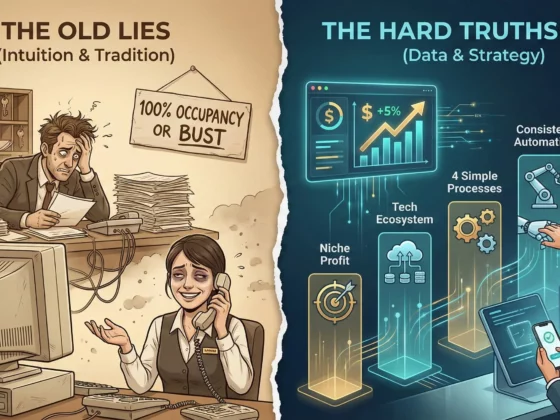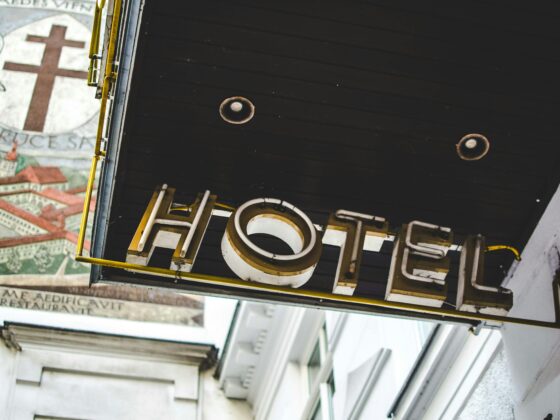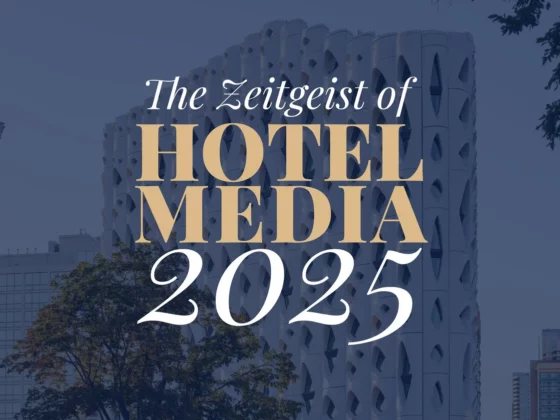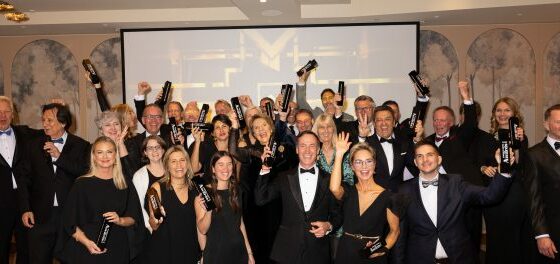Hospitality brands must shift from sterile presentations of features to narrative-driven engagements that address guests’ pain points and build emotional connections. Florencia Cueto Pedrotti, Director of Global Engagement & Sales Enablement at Shiji, sat down with Juanda Núñez, Founder of Smart Travel News. Known for his witty and engaging communication style, Juanda shared his insights about the power of personalisation, the evolving role of technology, and the importance of human connection in hospitality.
Takeaways
Legacy challenges persist: Overcoming integration issues and upgrading outdated systems are critical for future success.
Personalisation creates connection: Thoughtful, personal touches foster emotional connections and enhance guest loyalty.
Storytelling beats features: Audiences respond better to narratives highlighting benefits over purely feature-driven messaging.
Technology enables differentiation: Tools that personalise guest experiences help brands stand out in a competitive market.
AI enhances productivity: Artificial intelligence boosts efficiency, allowing teams to focus on strategic, creative initiatives.
The human touch in communication
Central to Juanda’s analysis is the assertion that communication strategies in hospitality must be humanised to achieve resonance and emotional engagement. Beyond conventional notions of personalisation, he advocated for authentic and thoughtful touchpoints—communication gestures that extend beyond transactional encounters.
“The inclusion of humour or personal narratives within professional contexts fundamentally changes the guest’s perception,” Juanda argued. “It is these micro-moments—a handwritten note, a tailored greeting, or a customised message—that elevate the guest experience into something memorable.”
Drawing parallels between storytelling methodologies and strategic communication, overly formal or mechanical messaging frameworks undermine emotional connectivity. For hospitality brands, the emphasis must shift from sterile presentations of features to narrative-driven engagements that address guest-centric pain points.
Challenges in corporate communication
The conversation turned to the challenges of corporate communication, often criticised for its rigidity and lack of warmth. Juanda shared insights from personal experience, pointing out how overly formal structures can strip messaging of its authenticity. Large organisations, bound by layers of approval processes, often produce impersonal and uninspired content.
“Organisations default to rigid frameworks to maintain consistency and mitigate risk, but this comes at the expense of emotional impact,” Juanda observed. “The challenge lies in balancing professionalism with relatability—an equilibrium that requires intentional effort.”
The efficacy of storytelling is a mechanism for differentiation. Narratives that illustrate tangible outcomes or resolve specific challenges are far more compelling than feature-laden messaging. Storytelling remains an underleveraged asset within corporate communication strategies.


Trends in hospitality technology
A deep dive into hospitality trends revealed the growing importance of differentiation. Significant changes in the industry, such as Booking.com’s choice to eliminate parity clauses, illustrate the evolving landscape. These changes signal a departure from price competition and a renewed focus on customer experience as the defining factor.
“Technology can operationalise personalisation at scale, enabling bespoke experiences that would otherwise be unfeasible,” Juanda noted. Examples include systems integrating guest preferences to deliver tailored service, such as customised welcome messages or experiential enhancements aligned with prior stays.
Technology plays a critical role in this transformation. From tools that capture guest preferences to systems enabling bespoke experiences, the emphasis is on creating meaningful, personalised interactions. Juanda illustrated this with examples of hotels leaving personalised notes in guest rooms, demonstrating how such gestures can elevate the guest experience.
Both underscored that technology must serve to make guests feel valued. It’s not just about efficiency but also about delivering moments that resonate emotionally and create lasting impressions.
The role of Artificial Intelligence
AI’s transformative potential as a productivity accelerator and a tool for enhanced decision-making capable of automating repetitive workflows will enable hospitality teams to redirect their efforts toward creativity, strategy, and relational initiatives.
“The strategic deployment of AI unlocks opportunities for meaningful engagement by reallocating human resources to value-driven tasks,” Juanda explained. “Furthermore, AI’s analytical capabilities can extract actionable insights from guest data, allowing for hyper-personalised experiences that drive loyalty.”
The critical barriers to AI optimisation, particularly data fragmentation and interoperability issues, must be overcome for organisations to fully realise AI’s potential. Foundational systems such as PMS, data platforms, and CRMs must be restructured to support seamless integration and unified data analysis.
Legacy systems vs modern solutions
The discussion also tackled the challenges posed by legacy systems. In many organisations, outdated property management software (PMS) and other tools create barriers to innovation. Modern solutions, designed with interoperability in mind, offer opportunities to streamline operations and improve guest experiences.
Yet, transitioning to these systems is not without its challenges. Integration issues, cost concerns, and resistance to change often hinder progress. They highlighted the importance of strategic investment in technology that aligns with organisational goals and guest-centric strategies.
“While legacy systems offer operational stability, they impose limitations on adaptability and integration,” Juanda asserted. He urged hoteliers to adopt modern, interoperable platforms designed to align with strategic objectives and facilitate long-term innovation.
Future trends and considerations
Looking ahead, the convergence of AI, machine learning, and data analytics are pivotal drivers of personalisation. The hotel industry’s success hinges on a deliberate balance between technological efficiency and human-centric service delivery.
But, technology should be seen as an enabler rather than a disruptor. By focusing on tools that facilitate personalised, meaningful service, businesses can enhance both operational efficiency and guest satisfaction.
Both Florencia and Juanda, emphasised that the human connection must remain at the heart of hospitality. Technology’s role is to enhance this connection, not replace it, ensuring that the industry continues to deliver exceptional experiences.
Conclusion
Authenticity and empathy remain central to success as the industry navigates this evolution. While technology is a powerful enabler, it is most effective when it complements human interaction. The future of hospitality lies in thoughtful, guest-centred strategies that prioritise connection and innovation.
Watch the full episode here: (in Spanish)
[embedded content]








